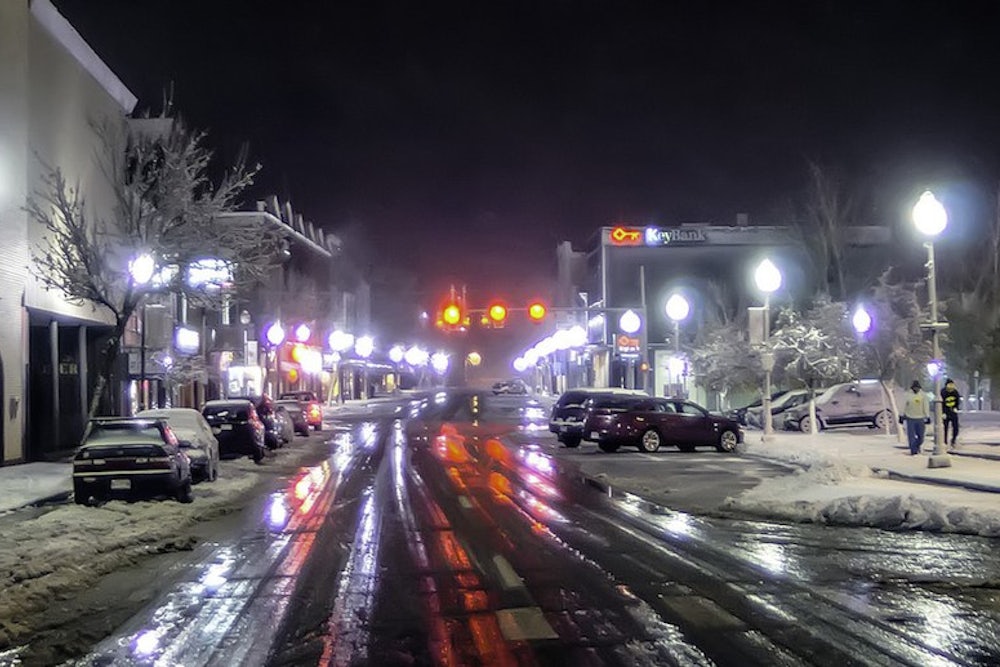Maine Governor Paul LePage might be the unluckiest politician today. The Republican incumbent is virtually tied in his reelection race—and the most conservative parts of his state are buried under an early-season, freak snowstorm that spared liberal Portland. According to The Huffington Post’s Kate Sheppard, central and northern Maine recorded up to 21 inches in areas, leaving 65,000 people without power.

If LePage loses by a hair, then Democrats can thank the snowstorm. It will be a rare occassion when their party benefits from bad weather. Rain and snow usually hurt voter turnout, which in turn tends to help Republican candidates. A 2012 Weather Channel poll found Republicans were more likely to turn out than Democrats even in bad weather, and voters who earn less than $50,000 a year were much less likely to vote. Luckily, this shouldn't be a factor in most midterm elections Tuesday: If Democrats lose as badly as expected, it will be under clear skies.
Three political scientists studied the effect of weather on turnout in 14 presidential elections from 1948-2000 (hat tip to Dennis Mersereau at Gawker). They found that rain "significantly reduces voter participation by a rate of just less than 1% per inch." Every extra inch of rain above the election-day average, the Republican presidential candidates received "approximately an extra 2.5% of the vote." Snow also helped Republicans, but not as much. On average, it boosted Republican candidates by 0.6 percent for every inch about the election-day average. A Weather Channel poll found voters over age 55 were 12 percent more likely to stay home when there were icy roads.
